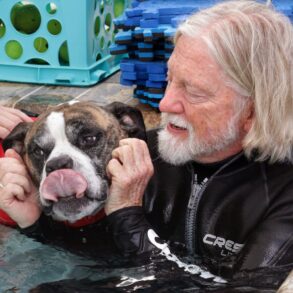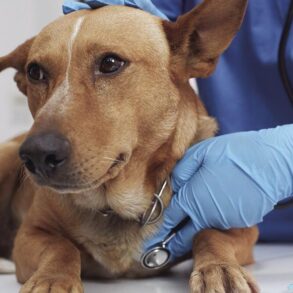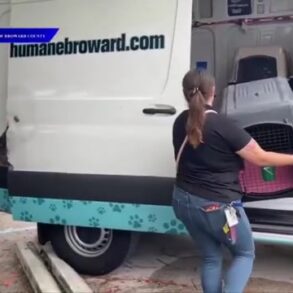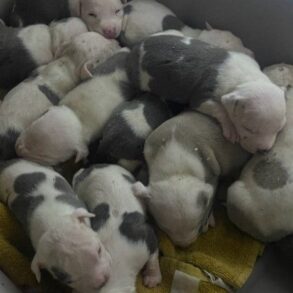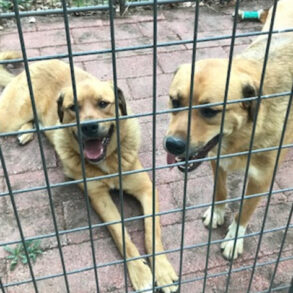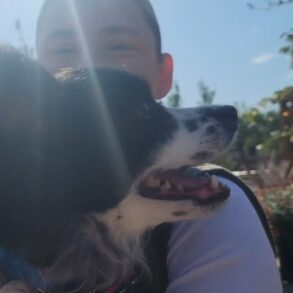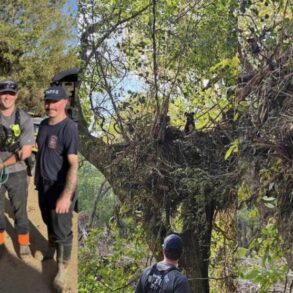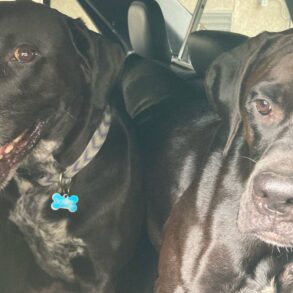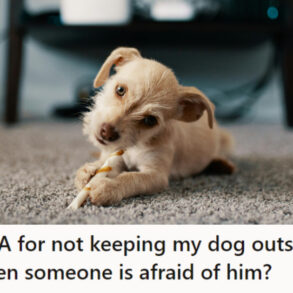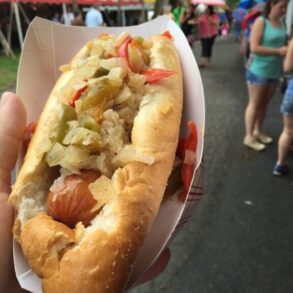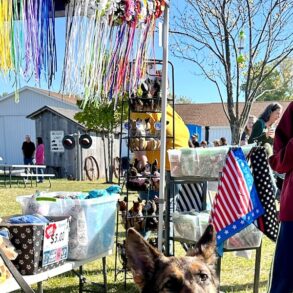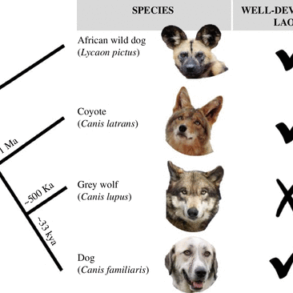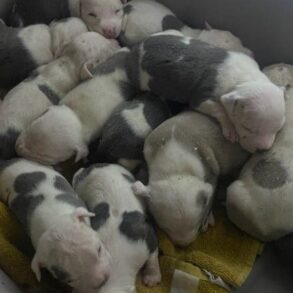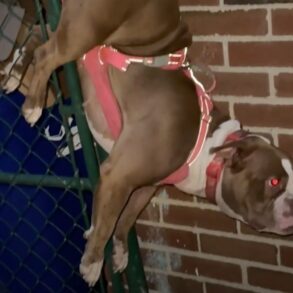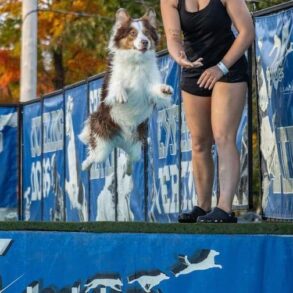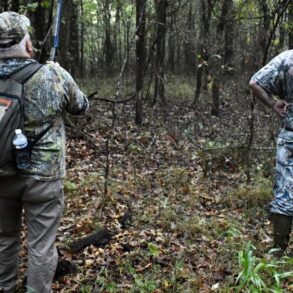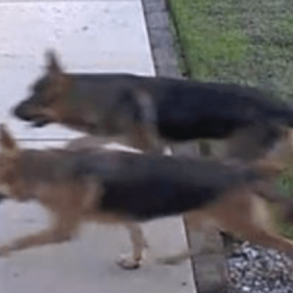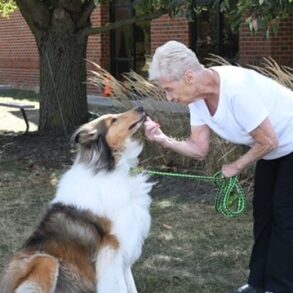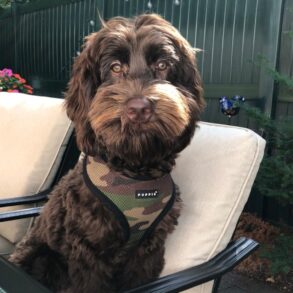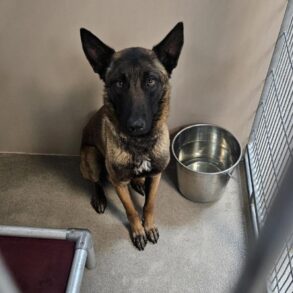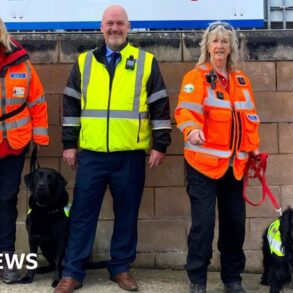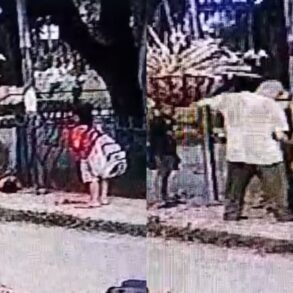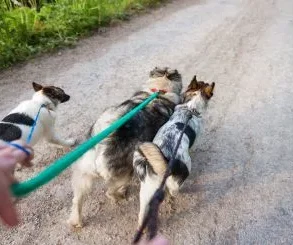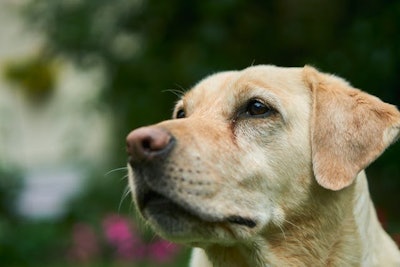 Agencies seek floppy-eared sporting dogs for bomb detection work for their high drive and excellent temperament.IMAGE: Pexels, Markus Distelrath
Agencies seek floppy-eared sporting dogs for bomb detection work for their high drive and excellent temperament.IMAGE: Pexels, Markus Distelrath
However, there are simply not enough dogs to meet growing demand, according to Melissa Ferrell, Research and Program Manager, Government Relations, for the AKC Detection Dog Task Force (DDTF).
“In fact, the shortage is estimated to be as high as 5,000 dogs a year,” Ferrell says. “The shortage is a result of the United States’ dependence on importing dogs from Europe. There’s a lot of competition for these dogs, and the dogs are often lacking.”
The majority of working dogs, around 90%, come from Europe, but the supply is scarce because of a surge in terrorism in other countries.
Ferrell explains state and local law enforcement and federal agencies have long looked to Europe, particularly countries like Germany, the Czech Republic, and the Netherlands, to source specialized dogs, such as German Shepherds, Belgian Malinois, and Dutch Shepherds, for police work.
She explains that it has become difficult to acquire these breeds for explosives detection due to the growing demand post 9/11, noting several reasons for this.
The first is other countries, such as China and Saudi Arabia, are entering the market with much larger budgets, often outspending the U.S.
Plus, dogs brought over from Europe often don’t meet the health standards for tough police and detection work, she says. In fact, Ferrell shares many dogs fail medical exams upon arrival in the U.S., particularly when it comes to orthopedic issues, such as hip and elbow problems. There are also concerns regarding gastrointestinal (GI) issues, which she explains can hamper a dog’s performance.
While overseas breeders provide radiographs and health records, sometimes it’s unclear if these records accurately represent the dog’s condition, further raising doubts about the health and breeding practices of these imported animals.
“We’ve even had reports of X-rays from Europe not matching the dog purchased,” says Sheila Goffe, AKC Government director. “They were receiving dogs that physically couldn’t handle the work without pain.”
To combat the shortage, the AKC has partnered with U.S. federal agencies to encourage the breeding of top-notch working dogs within the states.
“The AKC was approached by the Transportation Security Administration (TSA) in 2016 to remedy the situation, particularly with AKC-registered Labrador Retrievers and German Shorthaired Pointers, which are two of the most sought-after breeds for explosive detection work,” Ferrell says.
Goffe explains AKC’s well-known pedigrees make them a logical partner for breeding dogs for police detection work in the U.S.
“We have the lineage and the genetics here. It’s just a matter of us bringing before our breeders and trainers,” she says. “This is an issue that we should not take lightly. We want to help educate and empower our breeders to breed, train and raise, and then sell these dogs for local, state or federal jobs.”
The AKC Board of Directors established the AKC DDTF to champion the effort to address this national security issue. The Task Force interviewed key stakeholders involved in explosives detection including people from academia, government, military, policing, training and breeding, then launched several initiatives focused on Government Relations, Networking/Education and Breeder Outreach.
The Need is There
There’s been an increase in demand for explosives detection dogs since 9/11, according to Goffe.
AKC can be helpful in this area, particularly with Labrador Retrievers and German Shorthaired Pointers. These breeds have exceptional pedigrees within the AKC and are commonly used for this type of work.
“When we spoke with agencies, they said we are seeking floppy-eared sporting dogs,” she says. “The AKC, until the last year or two, registered more labrador retrievers than any other breed. We have the best sporting dog lines in the world. In fact, even the famous Australian labs working in Australian Customs can be traced back to an American bloodline.”
The AKC program collaborates with U.S. breeders to improve genetics, health, and temperament of K9s for detection work, including explosives detection in public areas.
The first step was to raise awareness on the significance of domestically breeding dogs for national security, according to Goffe.
“People do not recognize that this is a serious national security problem,” she explains. “We don’t go overseas to purchase helicopters or planes or other national security apparatus, so why would we go overseas for something as important as the dogs that save our lives?”
AKC pushed for buying American dogs and revamped dog acquisition to level the playing field. This required some public policy shifts, she says.
Finally, AKC worked to train breeders and internal AKC members how to build the best dog for explosives detection work. Working dogs require good temperament, along with good health. Dogs must not only have the drive to work but also the ability to recover quickly from startling situations. In high-traffic environments, such as airports, dogs need to remain calm and focused despite the constant flow of people.
“We need to focus on the characteristics of the dog, from their drive, soundness, mental and physical abilities,” she says. “Then we need to work with great breeders who can breed dogs with the required pedigree.”
She explains doing this required them to examine AKC data about lineage of the dogs. “This review creates a foundation for success,” she says. “We don’t have to worry about only two dogs making it out of a litter of five. We might have four or five make it. We are able to produce dogs that can succeed and make it through the rigors of training.”
This work aims to reduce reliance on overseas markets with unknown dog breeding standards, living conditions, and health by breeding dogs that are physically sound, mentally stable, and capable of handling the demands of rigorous training. By investing in the U.S. breeding program, the hope is to create a reliable supply of working dogs, ultimately enhancing national security and ensuring the welfare of these animals.
Patriotic Puppies
The crown jewel of the AKC’s efforts is its Patriotic Puppy Program (PPP). This program, manned by Stacy West, helps breeders and owners raise puppies with the potential to become explosives detection dogs.
This program arose after a pilot program proved breeders can produce high-quality dogs in a way that is replicable, according to Goffe.
To line up breeders, AKC needed to educate them on why the PPP made sense for them. Goffe explains breeders can sell an 8-week-old puppy for $2,500. But in this program, breeders must hold on to dogs much longer. She explains breeders involved in the program commit to retaining a promising puppy for 12–15 months and receive expert guidance throughout the process.
“We are asking them to hold on to these dogs for an extra eight months to a year, to raise them, and train them, hoping they can sell them for $3,500 to $4,500, which isn’t that much when you consider how much they have invested in them,” she says. “It’s not about the money. It’s about making a difference.”
The program has taken off, with 35 active participants from 16 states, and over 100 breeders attending monthly webinars.
All breeders in the program receive one-on-one instruction from AKC trainers, and one-on-one mentoring from the program manager.
“We do seminars once a month, every few months, either online or in person,” Goffe says. “We also host an online discussion group, at least monthly, to talk about, various training topics and share experiences. We have built a community of breeders who are all working together.”
Ferrell highlights the breeders’ adoption of a record-keeping system for training purposes. These records show what training the dogs received and how they performed each day.
“We have found that the trainers who are most successful in getting their dogs snapped up by agencies, are the ones who keep the most detailed training records,” she says. “Our program manager reviews those records and provides recommendations. He’s available to talk to them at any time and help them with training problems.”
In 2023, the program also added industry mentors who help breeders place green dogs with local, state and federal agencies.
“We find that our reputation is growing to the point that we are placing dogs very quickly and have agencies asking for dogs that will not be ready for a while,” Goffe says. “There is a fair amount of demand for these dogs.”
The Patriotic Puppy Program recently reached a milestone with over 100 dogs being deployed.
“We have placed over 100 dogs in law enforcement, everything from private contractors, local, state, federal dogs,” she says. “The U.S. Capitol Police has five of our dogs. The State Department has our dogs. The Department of Defense has our dogs. We even have a dog working at the Pentagon right now.”
The K9s are placed as “green” dogs, meaning they still need advanced training in explosives detection work.
“That advanced training happens when they are placed with the agency they will work with,” she says. “We never put them on an odor because we do not know what they will be ultimately trained to detect. The dogs go into a training program with their handler, where they learn together. Or the handler does the training themselves.”
Adopt a K9 Cop
The task force also collaborates with AKC Reunite’s “Adopt a K-9 Cop” program, which offers grants for the purchase of new detection dogs.
The AKC also partners with the United States Police Canine Association (USPCA) to further enhance the training and development of working dogs.
These programs are paving the way for a sustainable domestic breeding program, ensuring the U.S. has a reliable supply of detection dogs. These initiatives are helping not only breeders and trainers but also the safety and security of the nation.
To learn more about the AKC Detection Dog Task Force visit, https://www.akc.org/akc-detection-dog-task-force/
This post was originally published on this site be sure to check out more of their content.


